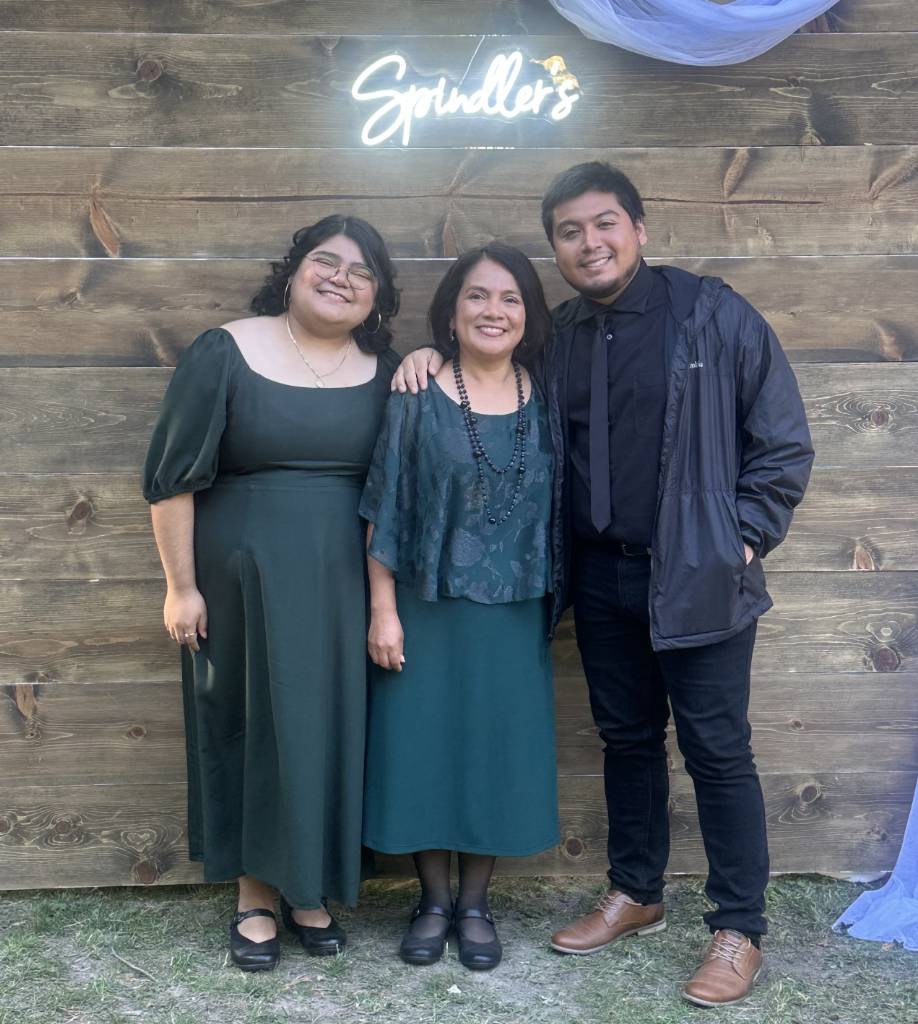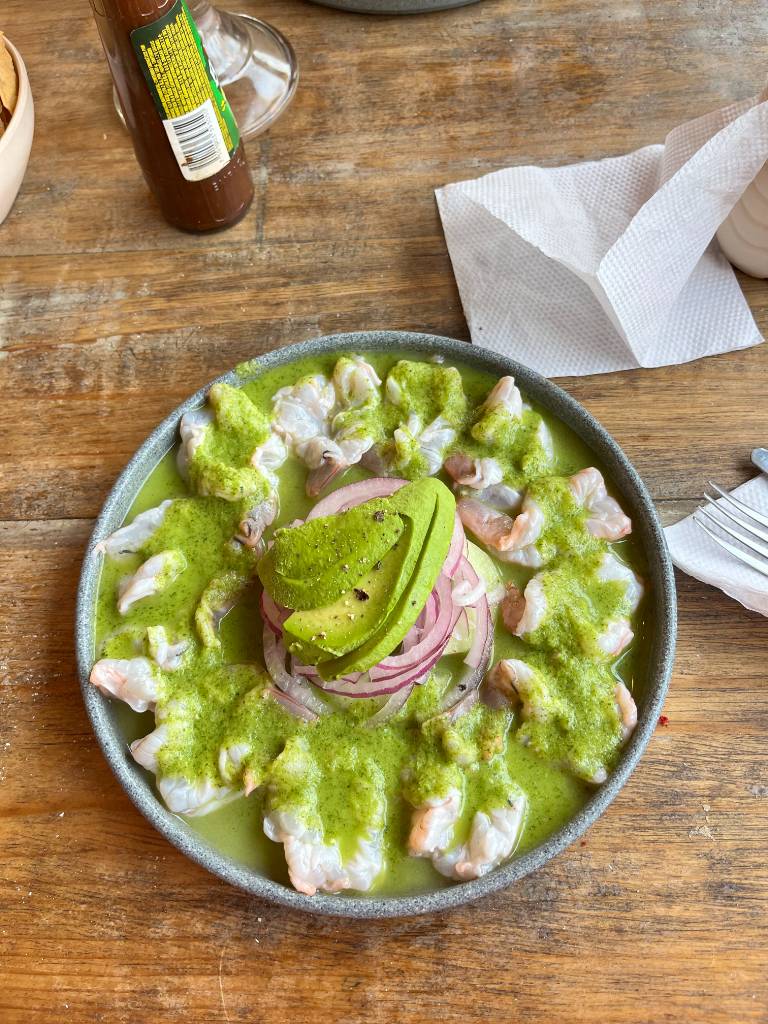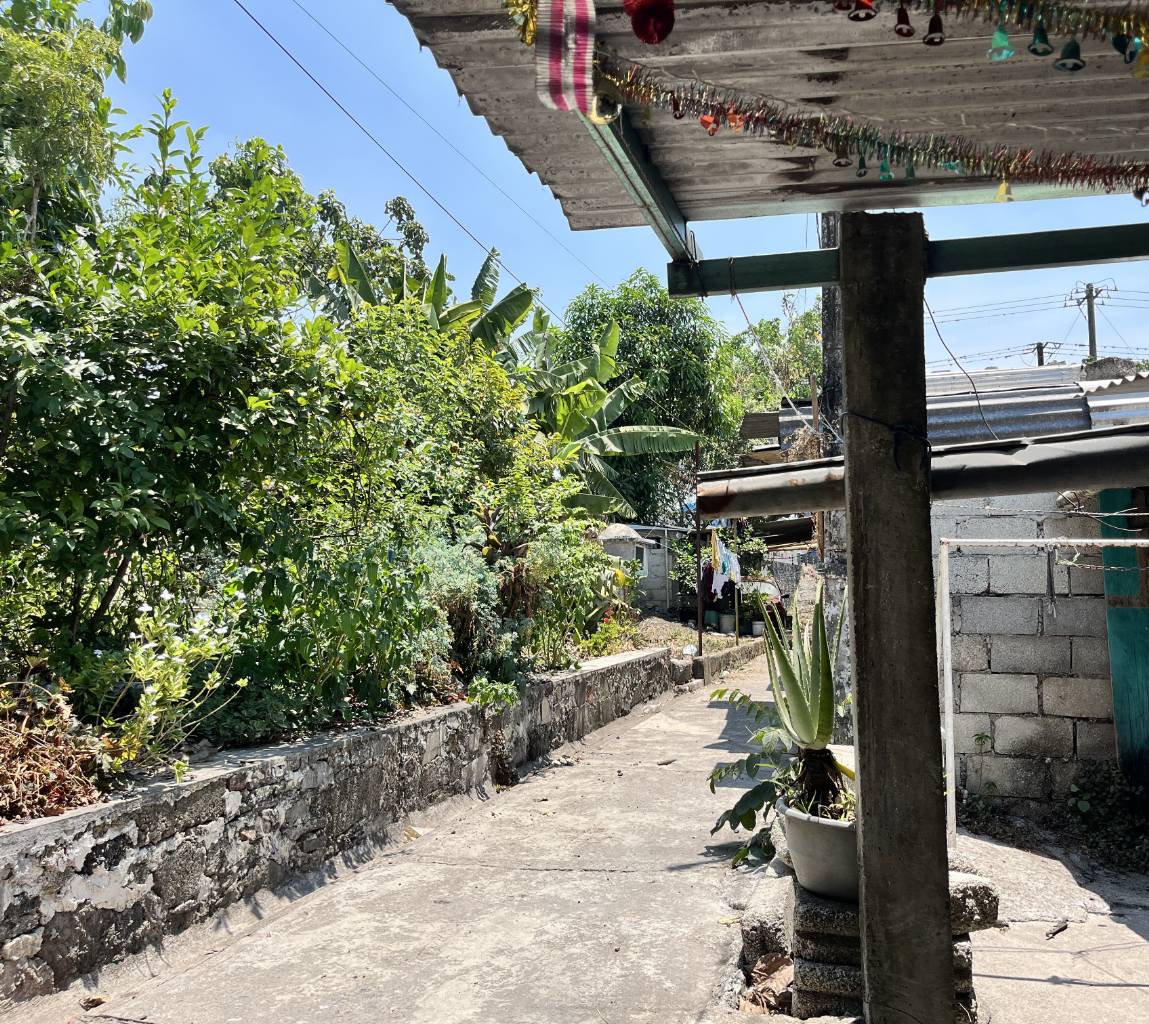Hispanic Heritage Month Spotlight: Numbers run in the family
October 14, 2024
Hispanic Heritage Month
To center diversity, equity and inclusion efforts, we invited OSCPA members to share their personal and professional experiences with culture and identity.
This feature is inspired by insights shared in OSCPA member Alondra's scholarship spotlight:
My love of math and my family inspired my career path. I’m following in the footsteps of my older brother [Oscar], who works in auditing, making me the second (future) accountant in our family. It’s pretty funny because my mom [Rubi], who immigrated from Mexico, told us that if she hadn’t immigrated to the United States, she would’ve studied accounting too. Knowing that I’m fulfilling one of her dreams motivates me even more.
How do you define your identity?
Alondra: My identity is defined by all those that came before me. I am a descendant of immigrants from Veracruz, Mexico, and am proud to embrace my Mexican heritage. Alondra means “lark,” which my mom named me because she wanted me to be a free spirit just like the bird. I think I have truly embodied the meaning and am trying to mark my own path, blending my Mexican roots and American upbringing to create a life that honors both cultures as a Mexican American.
Oscar: Growing up in the United States to Mexican parents, I always thought I had to pick between being an American or being a Mexican. I could not tell you why I thought that way, but eventually, in my late teens, I decided to proudly represent both.
Rubi: Mi nombre es Rubi, soy mexicana y nacida en Veracruz. Soy casada con 27 años de matrimonio y dos hijos. Considero que la confianza y el respeto juegan un importante parte en la relación con la familia. Creo en Dios y me considero una persona solidaria y empática a la que le gusta ayudar a la comunidad.
My name is Rubi, and I am Mexican, born in Veracruz. I have been married for 27 years and I have two children. I believe that trust and respect play an important role in familial relationships. I believe in God and consider myself a caring and compassionate person who likes to help the community.
What is your favorite cultural dish?
Alondra: My recent favorite cultural dish is aguachiles verdes. When I was in Veracruz this past summer visiting family, my aunt took us to a famous seafood restaurant near the port where they served the most amazing agauchiles. This dish, which translates to “chili water,” consists of raw shrimp submerged in lime juice and chili with cucumbers and onion. It tastes best with freshly caught shrimp.
Oscar: I am well known in my family to eat just about anything that they put in front of me, so picking one dish is difficult. That being said, my choice is the burrito. Whether they come in the smaller breakfast forms, or the food coma inducing food truck versions, you can never go wrong with one. My personal favorite type I just recently discovered, and it is a tripas (tripe) burrito, extra crispy, with rice, beans, cilantro, and diced onions. I still cannot believe it took me this long to finally try it.
Rubi: Mi comida favorita son los tamales rancheros al estilo Veracruz, son cocinados con costillas de puerco en salsa roja y una hierba llamada hoja santa envueltas en hojas de plátano. Yo podría comerlos todos los días de mi vida acompañados de un rico champurrado o un café negro muy caliente.
My favorite food is Veracruz-style tamales wrapped in banana leaves. They are made with pork ribs in red sauce and an herb called hoja santa. I could eat them every day of my life, accompanied by a delicious champurrado or a very hot black coffee.
Tell us a little bit about your upbringing.
Alondra: I was raised by my two extremely hard-working immigrant parents. My childhood consisted of regular visits to the library, road trips all over the state, and a curiosity for learning cultivated by parents. With all the hardships my parents faced, especially when they first immigrated to the US, they knew that my brother and my path to success was through our education. Knowledge is power, and they made sure that I grew up with that at the forefront of my mind.
Oscar: Growing up, these three things helped shape me into who I am today: family, soccer, and school. When I think of my family, I consider both my immediate/extended family and my friends. These people in my life have been my support system through every moment in my life, and I am grateful to every single one of them. Soccer and school went hand in hand for me, but as my mom always said, school came first. Soccer helped build my competitive nature and work ethic which ended up translating into my studies. I always enjoyed learning, so from a young age, I knew I wanted to go to college and have a career, so a lot of what I did growing up went towards trying to reach that goal.
Rubi: Mi vida antes de ser adulta fue muy difícil y no pude asistir a la universidad debido a nuestra pobreza. Yo quería estudiar contaduría, pero en lugar de eso tuve que emigrar a los Estados Unidos en busca de una mejor vida. Aprendí inglés para obtener un mejor trabajo y ser un buen ejemplo para mis hijos. Yo siempre les he dicho que si yo llegue aquí sin nada y sin saber inglés, y aún así me he superado, pues, cuanto y más ellos que han nacido aquí con la mesa ya servida.
My life wasn't easy, and I could not go to university because of our poverty. I wanted to study accounting, but instead I had to emigrate to the United States in search of a better life. I learned English to get a better job and to set a good example for my children. I always used to tell my kids, if I came here with nothing, without knowing English, and still managed to succeed, then so much more is possible for them being born here, with the table already set.
What sparked your interest in numbers?
Alondra: My love for numbers has always been a part of me, a characteristic I inherited from my mother. Education is a huge emphasis in our home, but even when I was forced to do things like learn my times tables, I turned it into a game and had a lot of fun learning. I even used to do extra math problems after school for fun, and it got to the point where my homeroom teacher asked me to remember to go outside and be a kid. Numbers have always made sense to me in a way that no other subject has. They’re like their own language that I love to learn.
Oscar: Ever since I was younger, I genuinely enjoyed math, so when I was in high school, during one of our career fairs, I ended up looking for jobs that paid well, were stable, and were math based. The two that stood out to me were accounting and engineering, and luckily my school offered accounting classes. After the first class I took, I fully dedicated my studies to becoming an accountant. Now that I am an Assurance Senior at Geffen Mesher & Company PC, a more than 90-year-old accounting firm based in Portland that helps businesses in this region, I am happy to say that my love of numbers and accounting has only continued to grow.
Rubi: Los números son fáciles para mí. Cuando estaba en la secundaria trabajé contando café para comprarme el libro de álgebra de Baldor recomendado por mi maestro. Yo no tenía TV ni mucho menos un videojuego, pero no los necesité, resolver los problemas algebraicos era mi pasatiempo favorito y me llenaba de satisfacción resolverlos sin error alguno.
Numbers are easy for me. When I was in middle school, I picked coffee beans to buy the Baldor algebra book that my teacher recommended. I didn't have a television or video games, but I didn't need them because solving algebra problems was my favorite pastime and it gave me great satisfaction to get them right.
How do you honor your culture in your daily life?
Alondra: I try to honor my culture in my daily life through my work ethic. I am where I am today due to my family’s resiliency and sacrifices. By putting my best effort forward, I feel I am not only positively representing myself, but the culmination of everyone’s efforts that allow me to be where I am today. I want to carry forward the legacy that has provided me endless opportunities.
Oscar: In boxing, the Mexican style is characterized by having an unwavering determination to push forward no matter how hard you get hit, and I believe that this translates to everyday life as well. Many icons in Mexican culture, not just in boxing, have lived by this never-say-die attitude, and by adopting this mentality to get where I am today, I hope I have my made my community proud.
Rubi: En casa solo hablo español y les pido a mis hijos que también lo hagan. Cuando ellos eran pequeños les leía libros en español y de vez en cuando aún le leo a mi hija de 21 años. Acudo a eventos como las posadas que son fiestas decembrinas, celebró el día de la Virgen de Guadalupe y disfruto de shows como El Chavo del Ocho y películas mexicanas como Cantinflas.
I only speak Spanish at home, and I ask my children to do the same. When they were little, I read books to them in Spanish, and I still read to my 21-year-old daughter from time to time. I go to events like the posadas, which are December holidays, I celebrate the day of the Virgin of Guadalupe and I enjoy shows like El Chavo del Ocho and Mexican films like Cantinflas.
What values were passed down to you that guide you in your work today?
Alondra: The value of community was deeply instilled in me by my family. I grew up with a very strong support system and showed me the importance of giving back to others and trying to leave a place better than how you arrived. This sense of community drives the work I pursue and influences my desire to uplift those in my Hispanic community.
Oscar: Seeing everything that my parents did for my family inspired me to adopt the same work ethic they showed me, and I am forever grateful for them. My mom climbed her way from janitor, to teaching assistant, to School-Home Liaison, all at the same school district, and my father, to this day, has worked 50+ hour weeks for the better part of 20 years until he started his own landscaping company. They showed me what resilience, patience, and determination looks like, and I want to honor their story by striving for even greater heights.
Rubi: Trabajo como asesora de familias, lo cual me llena de satisfacción. Yo considero que gracias a mi madre puedo desempeñar muy bien mi trabajo. Ella me enseñó a ser respetuosa, amable, compasiva e íntegra, y yo considero que estos valores son esenciales para tener éxito en esta función.
I work as a Home-School Liaison, which gives me great satisfaction. I think it is thanks to my mother that I am able to do my job well. She taught me to have integrity, to be respectful, kind, and compassionate, and I believe that these values are essential to being successful in this role.
How can we, as a community, better support up-and-coming Hispanic professionals?
Alondra: I think the community can better support Hispanic professionals by creating clear opportunities for executive leadership roles. Representation gives people hope that they can thrive and find community in their profession, yet we rarely see Hispanic professionals as CPAs, let alone as shareholders, CFOs, and other positions of greater influence. With accountants dropping in numbers, I think it crucial for firms to invest in bridging equity gaps for Hispanic students to pursue a higher education and feel incentivized to join this profession. Without visibility, it’s easier to feel like we don’t belong.
Oscar: The biggest hurdle I believe the Hispanic community has in the professional world is networking. Once we are able to get our foot in the door we can thrive, but that initial first step of putting yourself out there is something that can be difficult for many. If we can build a larger network in the Hispanic professional community, I believe the transition from school to the workforce would be easier. Having people in specific industries be points of contact to answer questions and guide people in the right direction would help us.
Rubi: Llevar motivadores hispanos a las escuela especialmente a las secundarias y preparatorias haría un impacto positivo en nuestros estudiantes. Crear más programas de mentoría incluyendo job shadows para motivar a nuestros estudiantes a perseguir una carrera profesional.
Bringing Hispanic motivational speakers into schools, especially middle and high schools, would have a positive impact on our students. Creating more mentoring programs, including job shadows, to motivate our students to pursue professional careers.
Organizations
Latino Network
www.latnet.org
ORLHC - Oregon Latino Health Coalition
www.orlhc.org
PODER - Oregon’s Latino Leadership Network
www.poderoregon.org
Articles
Library of Congress - Hispanic Heritage Month
www.hispanicheritagemonth.gov
.png)






